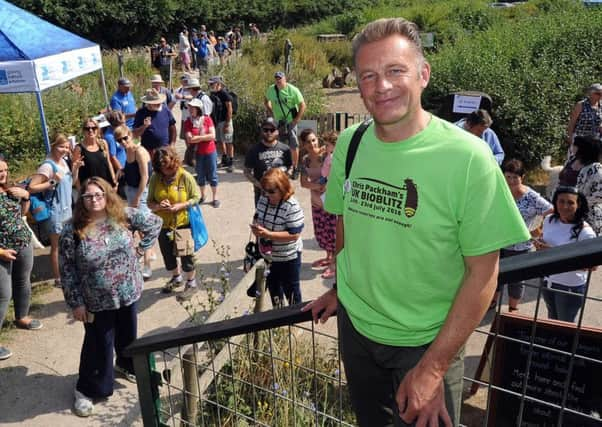Chris Packham calls for every primary school to be paired with a farm - and for a tax on pesticides


A manifesto for wildlife published today by TV presenter Chris Packham, with input from contributors including writer and activist George Monbiot and former RSPB conservation director Mark Avery, also says that primary school classes should name and own significant urban trees to fuel a growing awareness of the natural world.
Perhaps most controversially, the blueprint calls for a ban of driven grouse shooting, a tenth of the UK’s uplands to be “rewilded”, species such as beavers and lynx to be reintroduced into the wild and for 10 per cent of every farm to be managed entirely for wildlife, incorporating wildflowers and restored ponds and wetlands.
Advertisement
Hide AdAdvertisement
Hide AdThe campaigners demand a tax on pesticides to mirror a move recently announced in Denmark, and a target to cut the use of pesticides by 50 per cent by 2022.
At the same time as proposing that significant proportions of farmland should be take out of production, and for the more limited use of yield-boosting chemicals, the manifesto calls for farmers to receive a fair price for the food they produce, in return for their production methods being more sustainable.
According to Mr Packham, the proposals would help reverse an “ecological apocalypse” which has seen more than half of British species decline in recent decades.
More than 180,000 miles of hedgerows have been lost since 1960 and should be replanted, the group’s manifesto adds, and there should be wildlife ponds in every industrial estate and public park.
Advertisement
Hide AdAdvertisement
Hide AdMr Packham said the manifesto is a “first draft to ignite public interest”. It has been published ahead of a People’s Walk for Wildlife which will be led by the TV presenter in central London this Saturday.
“It’s time to wake up,” Mr Packham said. “We are presiding over an ecological apocalypse and precipitating a mass extinction in our own backyard. But, vitally, it is not too late. There is hope we can hold to, and there is action we can take.”
He calls for immediate Government action to halt the destruction of wildlife, arguing many measures can be taken that will cost taxpayers nothing and will hugely benefit Britain’s wildlife.
“This is a people’s manifesto - it’s not devised by the Government, and we don’t have to wait for them to do something. We can do it ourselves,” he said.
Advertisement
Hide AdAdvertisement
Hide Ad“We know how to solve the problems, we just need to make it happen.”
Other manifesto asks include bans on the use of lead ammunition and snares, dredging for scallops and seal culling in Scotland; for all new-build homes to have nest boxes for swifts, swallows and starlings, plus incentives for retrofitting them on older properties, and for hedgehog holes to be compulsory on new fencing.
There are also proposals for nationalising water companies and managing their land to benefit flood reduction and wildlife.
Cat owners should keep pets in at night to stop them killing wild birds, the manifesto also suggests, with it being mandatory for cats that roam to wear collars with bells on, while nature reserves should be dog-free and dog-walking spots should be created clear of wildlife-rich areas.
Advertisement
Hide AdAdvertisement
Hide AdEnvironment Secretary, Michael Gove, offered his thoughts on the manifesto, saying: “I welcome this important contribution to the debate around our environment.
“Chris Packham and his colleagues have successfully motivated the public to get behind many of these issues and I would like to thank everyone involved.
“Education plays a crucial part in developing our youngsters. Through our schools we can develop the next generation of environmentally aware citizens and ensure wildlife and the natural world is protected.”